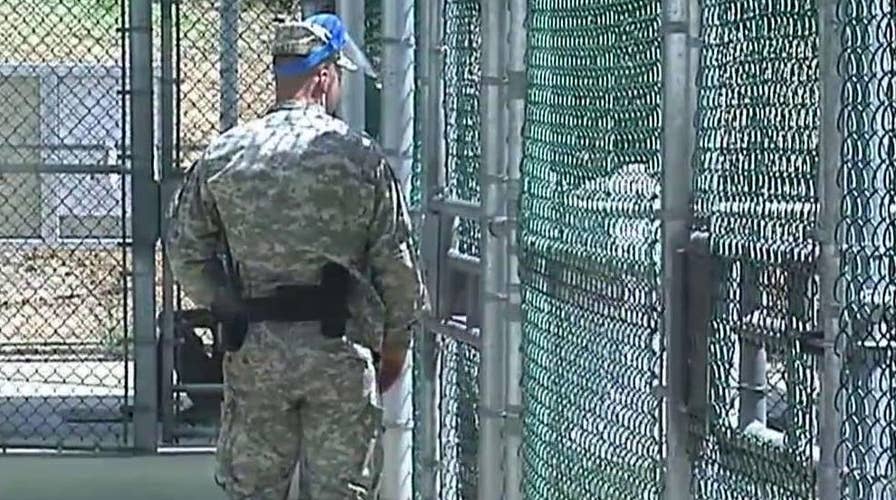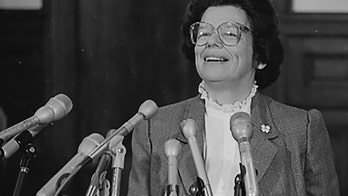Critics question Obama's methods, reasons for closing Gitmo
'Special Report' anchor Bret Baier takes an extensive look at what is happening at the Guantanamo Bay terrorist detention facility
Two more detainees were released from the Guantanamo Bay prison camp on Thursday, according to officials, though a third man slated to leave is insisting on staying behind.
According to reports, Mohammed Ali Abdullah Bwazir of Yemen, who is 35 or 36, and has been at the prison since 2002, was frightened to transfer to a country where he does not know anyone, his lawyer told reporters. Officials did not clarify to which country the prisoner -- tied in the past to both Al Qaeda and the Taliban in Afghanistan -- would have been going.
But Thursday’s successful transfer of two other detainees -- Yemeni Abdul Aziz Abdullah Ali al Suadi, 41, and Egyptian-born Bosnian Tariq Mahmoud Ahmed al Sawah, 58 -- brings the number of remaining prisoners at the camp down to 91, the lowest since the first detainees began to arrive at the installation in 2002.
According to the Defense Department, al Sawah was transferred to the Bosnian government. Tied to Al Qaeda with a history in explosives development -- particularly IEDs -- he was nonetheless recommended for release in 2007. According to prison officials in 2008, he was "morbidly obese," and despite being considered at the time a medium-level threat, he retained high intelligence value for U.S. officials.
Meanwhile, al Suadi has been described as an explosives trainer for Al Qaeda who in 2008 was still considered a potential high risk to the U.S., but also with high intelligence value. He was recommended for release by prison officials less than two years later. He has been at Gitmo since 2002, and is being transferred to the government of Montenegro.
The Obama administration announced in December that it was releasing a wave of 17 detainees cleared for transfer. None of them have been prosecuted or convicted by the military tribunal there.
Last week, 10 Yemeni detainees were released and transferred to Oman.
But not everyone wants to go. Bwazir's lawyer, John Chandler, told reporters his client is depressed. He was taken to the camp in 2002 and has been connected to Al Qaeda and the Taliban. Prison officials said previously that without proper supervision he might re-engage in extremist activities. Nonetheless, charges against him were withdrawn, and he was first recommended for transfer out of the prison in 2007.
“He just didn’t want to go,” Chandler told The New York Times Thursday, comparing him to a character in the film “Shawshank Redemption,” who could not face a life outside prison walls. However, being sent to a country where there would be family could make a difference.
“He just feels like he’ll be OK if he has a family to support him.”





